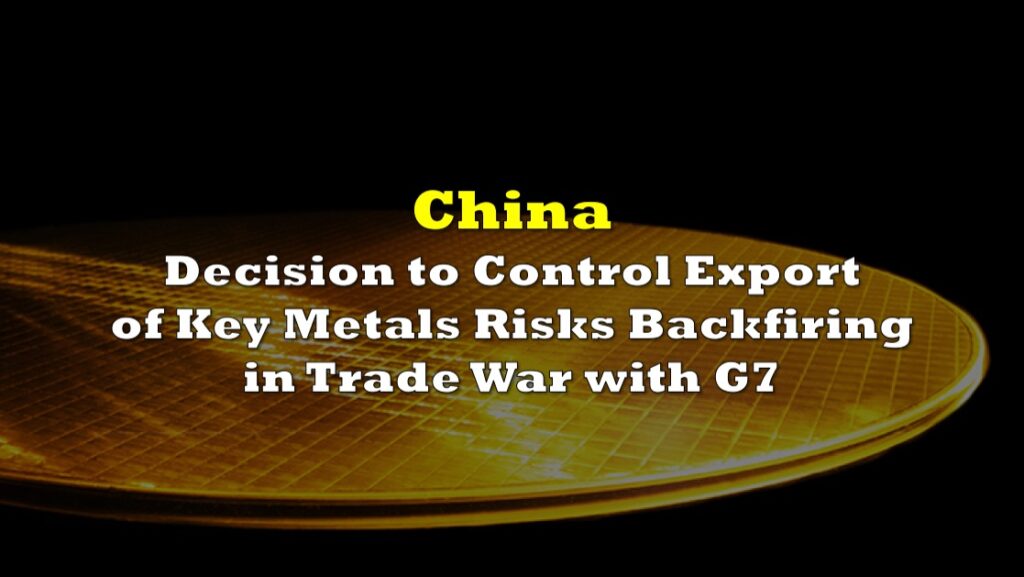China’s export controls on select gallium and germanium products— both vital components in the semiconductor industry— came into effect on Tuesday, signaling potential upheaval in international supply chains.
China, the world’s largest provider of these two metals, imposed the restrictions in early July, citing national security reasons and specifically highlighting the dual-use nature of these products for both civil and military applications.
As of August 1st, exporters must apply for specific export licenses for these goods— a process that is likely to take two months. Many traders are still in preparation to file applications, suggesting a further delay in the resumption of exports. This has sparked concern about the immediate availability of these metals outside China, leading traders to rely on existing stockpiles that might only last two to three months.
> Concerns about reliance on Chinese suppliers of critical minerals is now more acute after Beijing curbed exports of gallium and germanium earlier this month and as prices spike. The race is on to develop alternative sources overseas https://t.co/pa19AoxFcd pic.twitter.com/wk1VvGf1Kv
— Marika Katanuma (@marikakatanuma) July 25, 2023
The export controls have also resulted in unexpected market reactions. The prices for gallium and germanium have soared, with gallium ingot at Rotterdam jumping 43.4% to $370 per kg and germanium ingot rising 9.1% to $1,473 per kg, according to data cited by Reuters.
Information for this briefing was found via Reuters. The author has no securities or affiliations related to this organization. Not a recommendation to buy or sell. Always do additional research and consult a professional before purchasing a security. The author holds no licenses.







